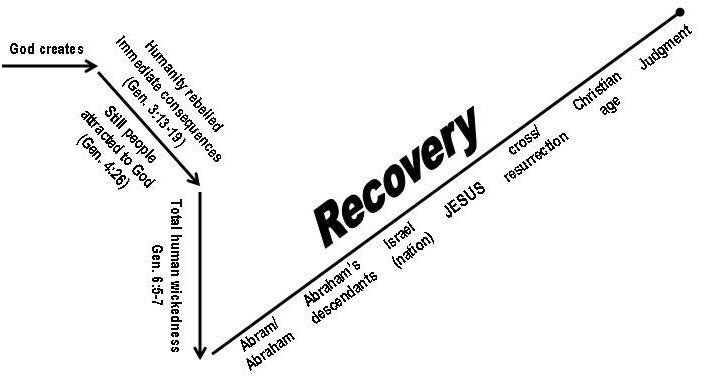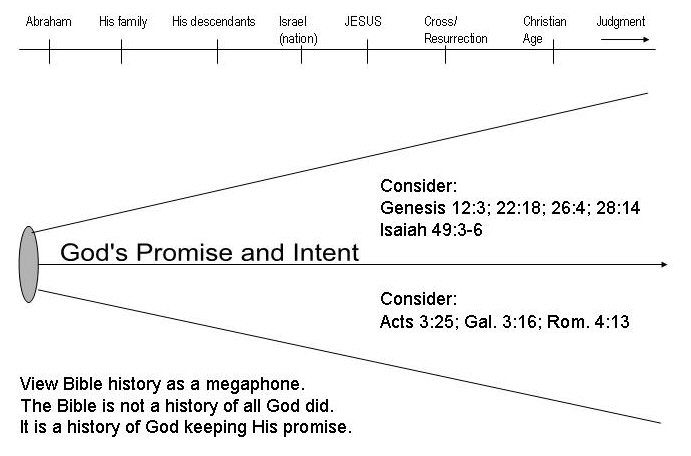
In today's texts, the Isaiah text stresses God has never looked at situations as people do, and the Matthew text (Jesus' Sermon on the Mount) demonstrates how people who think they have God's purposes identified can completely miss God's concerns.
From Genesis 2 to Genesis 6, humanity goes from the highest height to the lowest depth in human existence. People go from the height of sinless, direct association with God, prior to rebellion against God (consider Genesis 3:8), to being so evil that God could not tolerate the wickedness of people (consider Genesis 6:5-7). God's desire to rescue people from evil is evident in the fact that He would begin again with just one person who was righteous (had integrity) in his time (generations) [Genesis 6:8, 9].
Regardless of what you have learned about "the fall," you are challenged to consider statements from scripture. "The fall" generated by rebellion against God was both immediate and continuing. Because people rebelled against God by yielding to temptation, some consequences of human rebellion were immediate. For the woman, consequences involved pain in reproduction. For the man, consequences involved difficulty in providing physical necessities. A consequence was the loss of their home. However, do not assume that the consequences involved an immediate plunge into total evil from the moment God pronounced consequences. Matters could get worse because of the existence of evil in human life, and did!

After the initial rebellion, in the descendants of Seth there were people who wanted to call upon the Lord's name. To them, God was Lord, and they wanted to approach him (Genesis 4:26). They were not like Cain who foolishly thought he could distance himself from God by geographically going "out from the presence of the Lord" (Genesis 4:16). Sadly, this period ended when the people that sought God intermarried with people who wanted nothing to do with God (consider Genesis 6:1-3, 5).
God gave humanity a new beginning in the flood. Humanity did not take advantage of the opportunity. God provided the initiative, but humanity, in full awareness of the consequences of wickedness, did not take advantage of the opportunity.
God patiently waited until He found a person who would place a different kind confidence in Him before He took initiative again. God's initiative was unchanged--the recovery of people from wickedness which mean the restoration of His place as the "all in all" (See 1 Corinthians 15:24-28).
God made the promise to Abraham (Genesis 12:3; 22:18). God repeated the promise to Jacob (Genesis 281-3; 28:13, 14). God affirmed through Isaiah that His promise was the core purpose of Israel as a nation (Isaiah 49:3-6). God affirmed through Paul that Jesus Christ is the fulfillment of the promise to Abraham (Galatians 3:16).
Instead of looking at God's work in blocks, look at God's promise to bless the nations as a megaphone. It began small with one childless man. It ends huge with God's gift of a son to the world (John 3:16-21; 12:30-33: Acts 10:34-43). What God promised to Abraham, God fulfilled in Jesus Christ (Acts 2:36).

God's purpose has not changed with time. God's purpose existed before Abraham. God wanted to make it possible for people to be recovered from the slavery of wickedness. God patiently waited until He could send the Messiah/Christ/Savior, and He patiently waits for the nations to respond to His effort (2 Peter 3:9). We assist God's purpose by committing to God's purpose through giving ourselves to the Christ to be his disciples.
For Thought and Discussion
Link to Teacher's Guide
Lesson 3